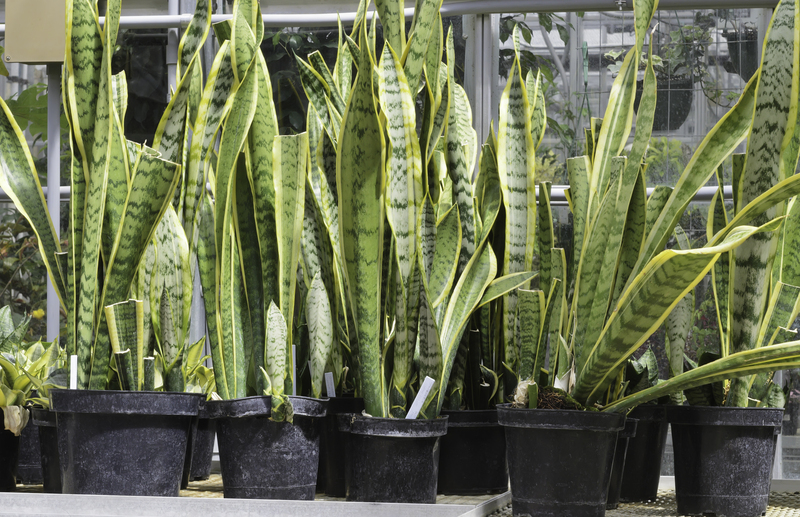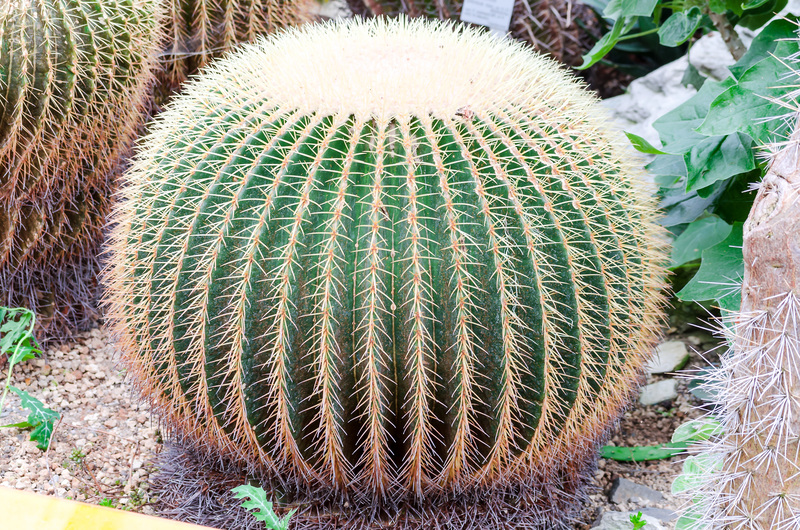Nurture Nature: 9 Key Tips for Gardening Beginners
Posted on 07/09/2025
Nurture Nature: 9 Key Tips for Gardening Beginners
Embracing gardening is more than a pastime; it's a way to nurture the natural world and your well-being. If you are taking your first steps into the world of gardening, you've embarked on a rewarding journey. This comprehensive article shares 9 key tips for gardening beginners to help you create and maintain a thriving green sanctuary. Whether your space is a sprawling backyard or a humble balcony, these gardening beginner tips will set you up for sustainable success.
Why is Nurturing Nature Through Gardening Important?
Gardening is more than just growing plants; it's an act of environmental stewardship. When we cultivate plants, we support pollinators, improve air quality, and create healthier communities. Studies also show that spending time nurturing nature can decrease stress and boost happiness.
For gardening beginners, understanding the crucial role you play in nurturing nature provides motivation and deeper satisfaction in your gardening activities.

1. Start Small and Simple
Begin your gardening adventure at a manageable scale. One of the main mistakes beginners make is taking on too much too quickly. Try these simple ways to start:
- Container gardening: Grow a few herbs or a couple of vegetable plants in pots on your balcony, windowsill, or patio.
- Raised bed gardens: A small, raised plot is easier to manage and eliminates many common soil problems.
- Vertical gardening: Use wall-mounted planters, shelves, or trellises to grow upward if space is limited.
Tip: Begin with 2-3 types of easy-care plants. Common options include basil, mint, lettuce, marigolds, or pansies.
2. Understand Your Gardening Zone
For novice gardeners, it's crucial to learn about your local climate and planting zone. These geographical areas, defined by minimum winter temperatures and length of the growing season, determine what plants will thrive in your garden.
- Use online gardening zone maps (e.g., USDA Hardiness Zones for the US) to figure out your local zone.
- Select plants suitable for your area to ensure resilience and productivity.
Tip: Visit a local nursery and talk to staff for region-specific gardening advice.
3. Choose the Right Location
Location matters in gardening. For your plants to thrive, they need adequate sunlight, good soil, and shelter from strong winds. Here's how to pick the perfect spot:
- Observe sunlight: Most vegetables and flowers require at least 6 hours of direct sun daily. Herbs and leafy greens may tolerate partial shade.
- Avoid low-lying areas: Water can pool in dips after rain, causing root rot.
- Consider convenience: Choose a spot visible from your home so you're reminded to water, weed, and enjoy it!
Tip: Place your garden near a water source for easy irrigation.
4. Invest in Healthy Soil for Gardening Success
The backbone of every successful garden is nutrient-rich, well-draining soil. Plants grow best when provided the right nutrients and structure. Follow these steps to nurture your soil:
- Test your soil for pH and nutrients with a simple home kit or through your local extension office.
- Add compost or organic matter to increase fertility, moisture retention, and drainage.
- Avoid harsh chemicals that may harm beneficial organisms--opt for natural fertilizers and amendments.
A little effort in building healthy soil will reward you with robust, resilient plants year after year.
5. Pick Easy-to-Grow Plants for Beginners
Gardening for beginners is most satisfying when you select low-maintenance plants that offer quick results. Here are some of the easiest plants to nurture nature in your backyard or balcony:
- Herbs: Basil, parsley, chives, and mint thrive in pots or garden beds.
- Vegetables: Lettuce, radishes, beans, and cherry tomatoes are quick and straightforward to grow.
- Flowers: Marigolds, zinnias, sunflowers, and nasturtiums add vibrant color and attract pollinators.
- Native plants: These are adapted to your local conditions and offer essential food and shelter for wildlife.
Tip: Always read seed packets or plant labels to check sunlight, spacing, and water requirements. This helps gardening newcomers avoid common pitfalls.
6. Learn Consistent Watering Techniques
Watering is one of the most vital skills for a gardening newbie. Plants need the right balance--not too much and not too little. Follow these tips:
- Check soil moisture: Stick your finger about an inch into the soil. If it's dry, it's time to water.
- Water deeply and less frequently: This encourages roots to grow deeper, making plants more drought-resistant.
- Water early in the morning: Reduces evaporation and fungal growth.
- Mulch around plants: This maintains moisture and regulates soil temperature.
Remember, overwatering can be just as harmful as under-watering, especially for gardening beginners.
7. Prevent and Manage Garden Pests Naturally
Every gardener encounters pests, but beginners can nurture nature and keep their plants healthy without resorting to harmful chemicals. Here are natural approaches to pest control:
- Encourage beneficial insects: Ladybugs, lacewings, and bees will naturally control pests and pollinate your plants.
- Hand-pick pests like caterpillars and beetles when you see them.
- Use barriers and traps: Row covers, netting, and sticky traps help prevent damage.
- Try organic sprays: Neem oil and insecticidal soap are safe for your plants and the environment.
Tip: Healthy, well-nurtured plants are less likely to succumb to pests. Keep your plants vigorous by providing optimal growing conditions.
8. Practice Patience and Observation
Nature operates at its own pace. As a gardening beginner, it's important to be patient and observe the changes in your garden. Record your successes and failures in a gardening journal:
- Note the weather, plant growth, pests, and harvests.
- Adjust your techniques based on your observations: For example, if a spot receives too much shade, try moving a plant or trimming overhanging branches.
- Celebrate small victories: The first sprout or bloom is always rewarding.
Tip: Spend a few minutes each day simply observing your garden. You'll notice subtle changes and learn how to better nurture nature in your space.
9. Continue Learning and Growing
Gardening is a lifelong journey of discovery. Even the most experienced gardeners learn something new every season. To grow as a successful gardening beginner, keep expanding your knowledge:
- Read gardening books and follow trusted garden blogs.
- Join a local gardening club or community garden.
- Attend workshops or take online gardening courses.
- Share your experiences with friends and family.
Tip: Visit local botanical gardens or nurseries for inspiration. Observing professional gardens helps you visualize and plan your own.
Extra Gardening Beginner Tips for Success
- Label your plants: Especially valuable for novice gardeners so you can remember what you planted and where.
- Rotate crops annually: Prevents soil nutrient depletion and reduces disease risk.
- Stay organized: Maintain a calendar for planting, watering, and fertilizing schedules.
- Practice sustainable gardening: Reduce waste by composting kitchen scraps and using rainwater when possible.
- Protect wildlife habitat: Avoid pesticides, provide shelter, and plant a diversity of species to nurture the natural environment.
Common Challenges for Gardening Beginners
Dealing with Plant Diseases
Fungal, bacterial, or viral diseases can discourage new gardeners, but most issues are preventable:
- Space your plants properly to encourage air circulation.
- Remove diseased plant material immediately to stop the spread.
- Mulch appropriately to prevent soil-borne diseases from splashing onto foliage.
- Use disease-resistant varieties when possible.
Managing Time Effectively
Gardening doesn't have to be a full-time commitment. Even a few minutes each day can yield amazing results. Consider using automatic watering systems or low-maintenance plants if you have a busy schedule.
Dealing with Unpredictable Weather
Weather can be a challenge for those new to nurturing a garden. Learn to adapt by:
- Choosing hardy, weather-resistant plants
- Using row covers and cold frames to protect from frost
- Installing shade cloths to shield from extreme heat
Eco-Friendly Gardening: Nurture Nature Responsibly
One of the most rewarding aspects of gardening is creating a positive impact on the environment. Beginners can contribute to sustainable gardening by:
- Choosing native plants that support local wildlife and require less water and care.
- Reducing chemical use to minimize harm to beneficial insects, birds, and the soil ecosystem.
- Composting organic waste to enrich the soil naturally and cut down on landfill contribution.
- Collecting rainwater and using efficient irrigation to conserve water resources.
By following these sustainable gardening practices, beginners can nurture nature while enjoying a beautiful and thriving garden.

Conclusion: Begin Your Gardening Journey Today
Embracing the nurture nature philosophy empowers gardening beginners to create thriving green spaces while protecting the environment. By following these 9 key tips for gardening beginners, you'll cultivate not just plants but also a lasting connection to the earth.
- Start small and manageable
- Know your local growing conditions
- Select the right spot for your garden
- Invest in healthy soil
- Pick easy-to-grow plants for quick success
- Water wisely and consistently
- Control pests naturally and gently
- Embrace patience and continued learning
- Practice eco-friendly, sustainable gardening
Step outside, get your hands dirty, and watch as your efforts nurture nature--one leaf, flower, and fruit at a time! Use these beginner garden tips as a springboard for a lifetime love of gardening. Happy planting!
Frequently Asked Questions (FAQ) About Gardening for Beginners
What are the best plants for first-time gardeners?
Herbs (basil, mint), leafy greens (lettuce, spinach), tomatoes, radishes, marigolds, and sunflowers are all great choices for gardening beginners. Choose varieties suited to your local climate for best results.
How often should I water my garden?
Water gardens deeply 2-3 times per week, depending on weather conditions and soil type. Always check soil moisture before watering to avoid over- or under-watering.
How do I keep pests away without chemicals?
Encourage beneficial insects, use physical barriers, hand-pick pests, and use natural sprays such as neem oil or insecticidal soap for gentle, eco-friendly pest management.
Can I start a garden with very little space?
Absolutely! Container and vertical gardens are ideal for balconies, patios, and small yards. Choose compact plant varieties for success in limited spaces.
Why is composting important for new gardeners?
Composting transforms kitchen scraps and garden waste into nutrient-rich soil, improving plant health and reducing waste. It's an essential sustainable gardening technique for beginners.
Latest Posts
Harness the Power of 3 Tips for Superior Weed Control
9 Efficient Hedges for a Cozy, Private Yard
Imaginary Escapades: Crafting Gardens Kids Will Love
Love Where You Lounge: Designing Dreamy Garden Seating Areas
Get the Most Out of Your Garden with These 5 Cost-Conscious Ideas

